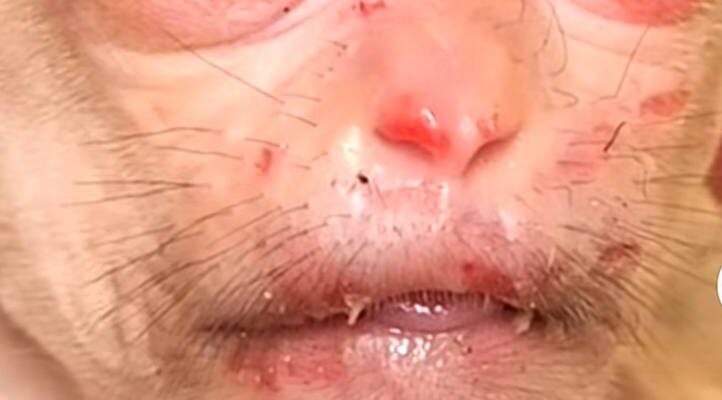In the heart of the jungle, one might expect that baby animals grow up nurtured by their kind, protected under the warm canopy of familial love. But nature is not always kind — and for some, life begins with more suffering than solace. Among primates, especially in wild or semi-captive environments, social hierarchies and aggression can take a dark turn. For one baby monkey, life becomes a daily struggle — not just to survive the harsh environment, but to survive the cruelty of its own kind.
Born into Hostility
The baby monkey, barely weeks old, clings to its mother with tiny, trembling hands. But its world is far from safe. Other members of the troop — sometimes older juveniles, sometimes adult monkeys — begin to show signs of aggression. It starts with exclusion, pushing the baby away during feeding time or grooming sessions. Then the biting begins.
This behavior, while shocking to human observers, is not entirely unheard of in primate societies. In unstable troops, or where resources are scarce, even infants can become targets of bullying or abuse. Lower-ranking mothers may find their babies under constant threat from dominant females or aggressive males. These bites aren’t playful nips — they leave wounds, both physical and psychological.
Why Do Monkeys Turn on Their Young?
The reasons behind such brutality are complex. In some cases, jealousy plays a role — higher-ranking females may attack infants of lower-ranking ones to assert dominance or reduce competition. In other scenarios, males may attack or even kill babies that are not their offspring to bring the mother back into estrus.
Sometimes, it’s simply a matter of social stress. In overcrowded or unnatural habitats, like roadside monkey temples or urban environments where humans feed and interact with monkeys, social order breaks down. Hierarchies become unstable, fights break out more frequently, and vulnerable individuals — like baby monkeys — bear the brunt of it.
The Psychological Impact
The constant fear and physical pain affect the development of the baby monkey. It becomes anxious, withdrawn, and less likely to play or explore — activities critical for learning and social bonding. If the mother is too low-ranking to protect her baby effectively, or worse, if she is abusive herself due to her own stress, the infant grows up isolated, mistrustful, and often stunted in behavior.
Scientists studying primate psychology have drawn parallels between such treatment and trauma experienced by human children in abusive environments. The effects are long-lasting, shaping how the young monkey interacts with others throughout its life.
A Call for Compassion and Awareness
This painful reality is a reminder that even in the wild, life isn’t always the harmonious paradise we imagine. But it’s also a call to action for humans who interact with or observe wildlife. Feeding monkeys, disrupting their social systems, or keeping them in poor conditions for tourism or entertainment can worsen this cruelty.
The baby monkey’s miserable life is not just a sad story — it’s a reflection of how fragile and complex animal societies are. And it’s a reminder that compassion must extend beyond species, starting with understanding, respect, and protection of the most vulnerable among them.



